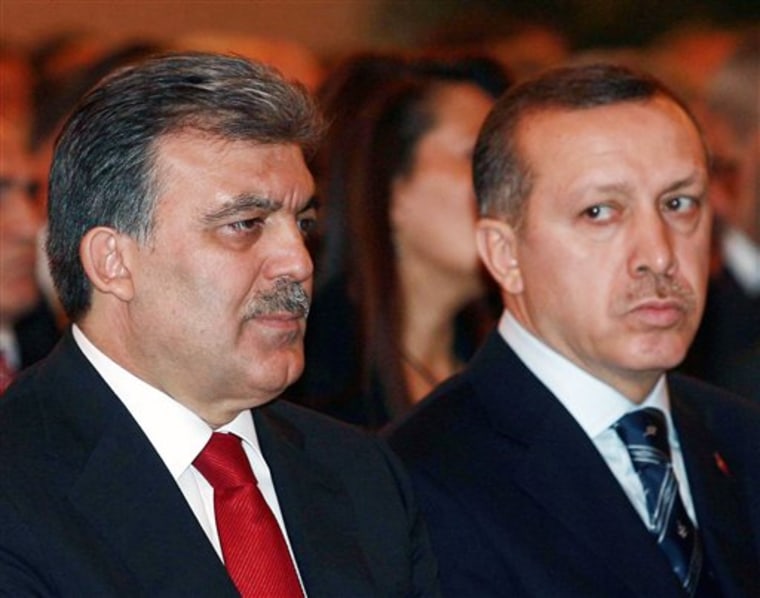Turkish warplanes hit eight suspected Kurdish rebel hideouts in northern Iraq on Wednesday, the third cross-border air assault in 10 days, Turkey's military said.
The warplanes struck in an "effective pinpoint operation" targeting eight caves and other hideouts being used by the separatist rebels of the Kurdistan Workers' Party, or PKK, the military said in a statement.
No rebel deaths were immediately reported.
On Tuesday, Turkey's military claimed that more than 200 Kurdish rebel targets in northern Iraq have been hit since Dec. 16, killing hundreds of rebels. Wednesday's strikes were the third aerial operation confirmed by the military since Dec. 16. The military also has confirmed that it sent ground troops to hunt down the rebels on Dec. 18.
Inside Turkey, troops said they had killed six Kurdish rebels on Wednesday, raising the rebel death toll from a two-day group operation to 11. Two other rebels were captured, the military said.
War of autonomy
The PKK has waged a war for autonomy in parts of Turkey for more than two decades. The fighting has cost tens of thousands of lives. The U.S., the European Union and Turkey consider the PKK a terrorist organization, but the U.S. in particular has been concerned that Turkish operations affecting northern Iraq could destabilize one of the war-torn country's most stable areas.
The military launched the latest air operation after spotting a group of rebels preparing to spend the winter in hideouts, it said.
In Iraq, Jabar Yawar, the deputy minister of the Kurdistan regional government's Peshmerga forces, said Turkish planes had carried out a half-hour raid near the border, starting at 8:30 a.m. Wednesday.
"Because the areas were deserted, there were no civilians casualties," he said.
Up to 175 rebels were killed on Dec. 16 alone in "unprotected buildings" in the mountainous areas in northern Iraq, the military said Tuesday, adding that the death toll did not include rebels believed killed inside hideouts and caves. The military said scores of rebels wounded in the operations were taken to hospitals in Iraq's northern cities.
Other hideouts and anti-aircraft weapons were struck in a cross-border air assault on Dec. 22, followed by artillery fire from inside Turkey.
Of Wednesday's raids, the military said: "It was observed that a large group of terrorists who were being watched by the Turkish Armed Forces for a long time were preparing to spend the winter ... in eight caves and hideouts."
"Turkish warplanes have struck the mentioned terrorist group targets with an effective pinpoint operation as of the morning of Dec. 26," the statement said, adding that the military was determined to continue its operations against the rebels.
U.S. assists Turkey
The U.S. has been providing intelligence to Turkey on the Kurdish rebels since a Nov. 5 meeting between Prime Minister Recep Tayyip Erdogan and President Bush, who said the rebel group was an enemy of the U.S., Turkey and Iraq.
A coordination center has been set up in Ankara so Turks, Iraqis and Americans can share information.
Ankara has said it would not tolerate more PKK attacks, after a string of deadly ambushes killed dozens of troops in the past months. In October, the parliament allowed the government to end troops into Iraq to hit rebel bases there.
Also Wednesday, a woman died in hospital from wounds suffered in a small bomb explosion in Istanbul the day before, Gov. Muammer Guler said. Six other people were also injured in the blast. No one claimed responsibility for the attack, but Guler blamed the Kurdish rebels.
